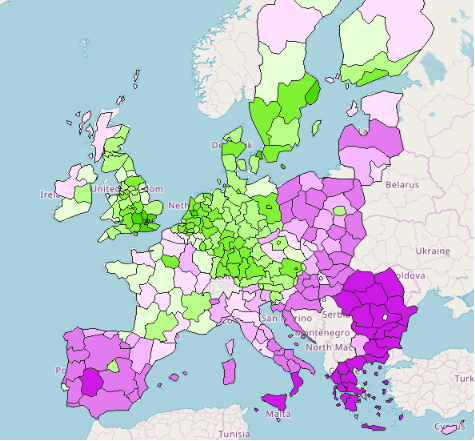The analysis of national Institutions (Government, legislation, judiciary, security forces and others) as well as their performance, constitutes the first pillar of the WEF Global Competitiveness report.
Institutions shape the frame that will support the country’s development. A solid, broad, stable structure of institutions can shelter a dynamic, healthy society.
This category includes the following subcategories (best performers in parenthesis):
- Security (Finland)
- Social capital (New Zealand)
- Checks and balances (Finland)
- Public sector performance (Singapore)
- Transparency (Denmark)
- Property rights (Finland)
- Corporate governance (New Zealand)
- The future orientation of government (Luxembourg)
Finland is the best overall performer in this category and 11th most competitive country in 2019).
It is not my goal to review one by one the different 26 indicators comprised in this category. The curious reader can check the individual descriptions included at the end of the report. (https://rb.gy/r9qaoy)
It is not difficult to understand, from the list of subgroups mentioned here above, why they play such an essential role as a base for competitiveness. Both national and international investors will consider them before deciding to move forward.
I have more than 25 years of activity in business fields all around Europe. I can assure that investment flows when the institutions provide security and linger when the system is unstable.
It is not the same to be a small investor than a large one. Small investors will not put too much attention on matters such as freedom of the press or intellectual property protection. More substantial investments will adjust their lenses to catch a larger picture.
Small or big, one of the first points that international investors consider when planning an investment in a new country is the level of corruption. If corruption is perceived as a threat to business goals, many investors will have second thoughts. Most investors do not want to cope with corrupted officials. Corruption also reduces the development of inhouse businesses, making their plans more expensive. Corruption mines the improvement of society in the benefit of a few. Countries with high levels of perceived corruption lose competitiveness.
Bureaucracy is another enemy to defeat. For some incredible reasons, some countries like to settle very bureaucratic administrations that will make things extremely complicated to all.
I have to say that for consultants like myself, bureaucracy is a terrible companion. We want our clients to start their activity as soon as possible and to move forward. We do not make our money from going from office to office from desk to desk. Clients frequently do not understand and do not want to understand bureaucracy; it is not their business. They do not appreciate, neither, the costs linked to these delays.
Corruption and bureaucracy are good friends of each other and foes of the general interest. Every effort to reduce them is justified.
The European Union has encouraged the development of regions within the member states. This administrative power has been developed differently in each country. It permits to measure the level of competitiveness per region, on similar bases to those used by the WEF. The European index for regional competitiveness is here https://rb.gy/kbnipg

While the political alternation in a government, from a moderate link to a moderate right and vice versa, has no significant impact by itself, shaky institutions profoundly alter competitiveness. Daily appearances for news such as a government (country or a region) that wants to decriminalize corruption, attacks judicial independence, wants Brexit or unilaterally promotes the independence of a part of a country reduce trust and directly affects future investments.
Strong institutions based on the rule of law and separation of powers with long term goals, low corruption, low bureaucracy, focus on State interest and not on party interest and general efficiency are in the interest of the population and businesses. They should be at the core of every government.





